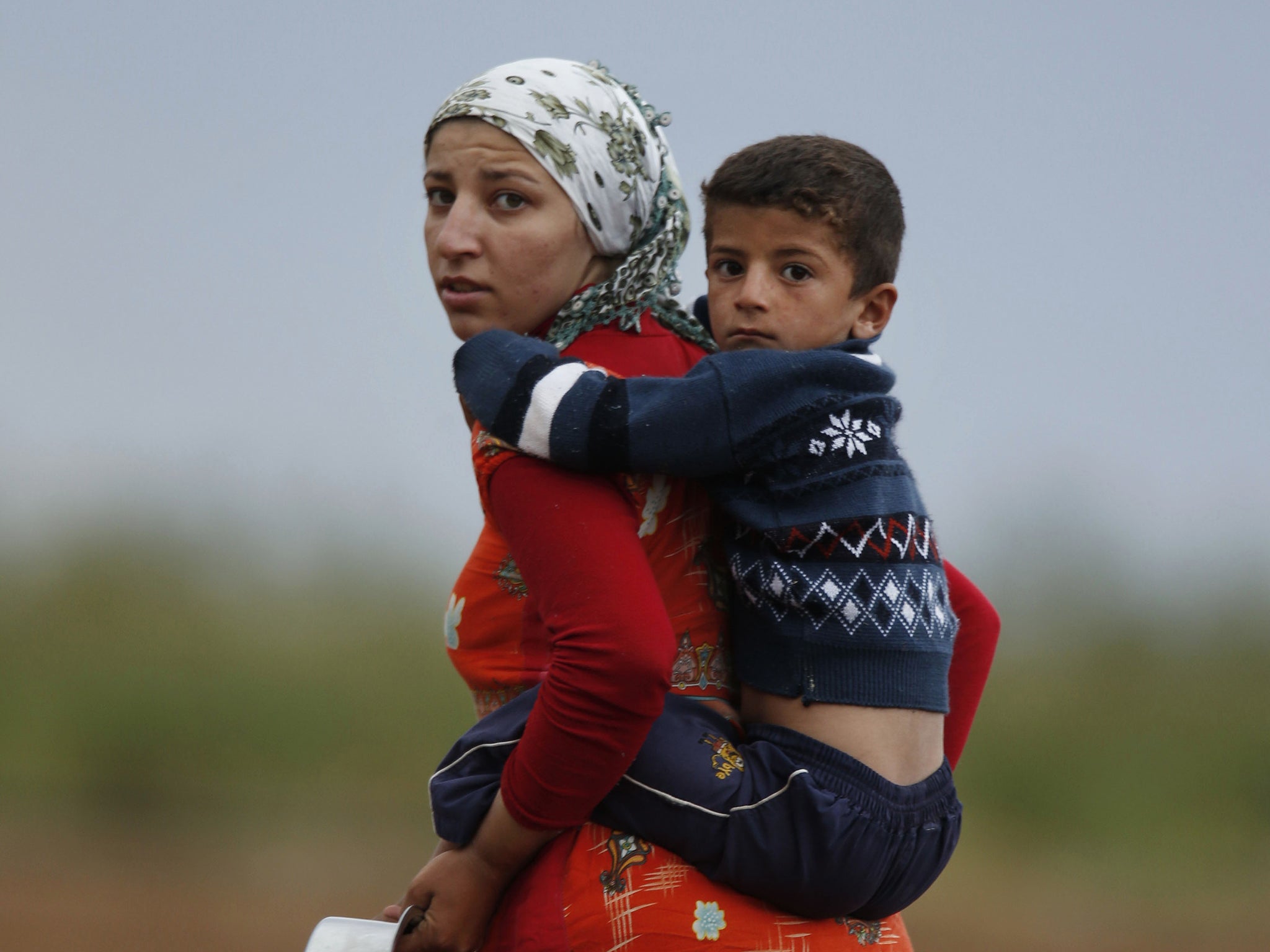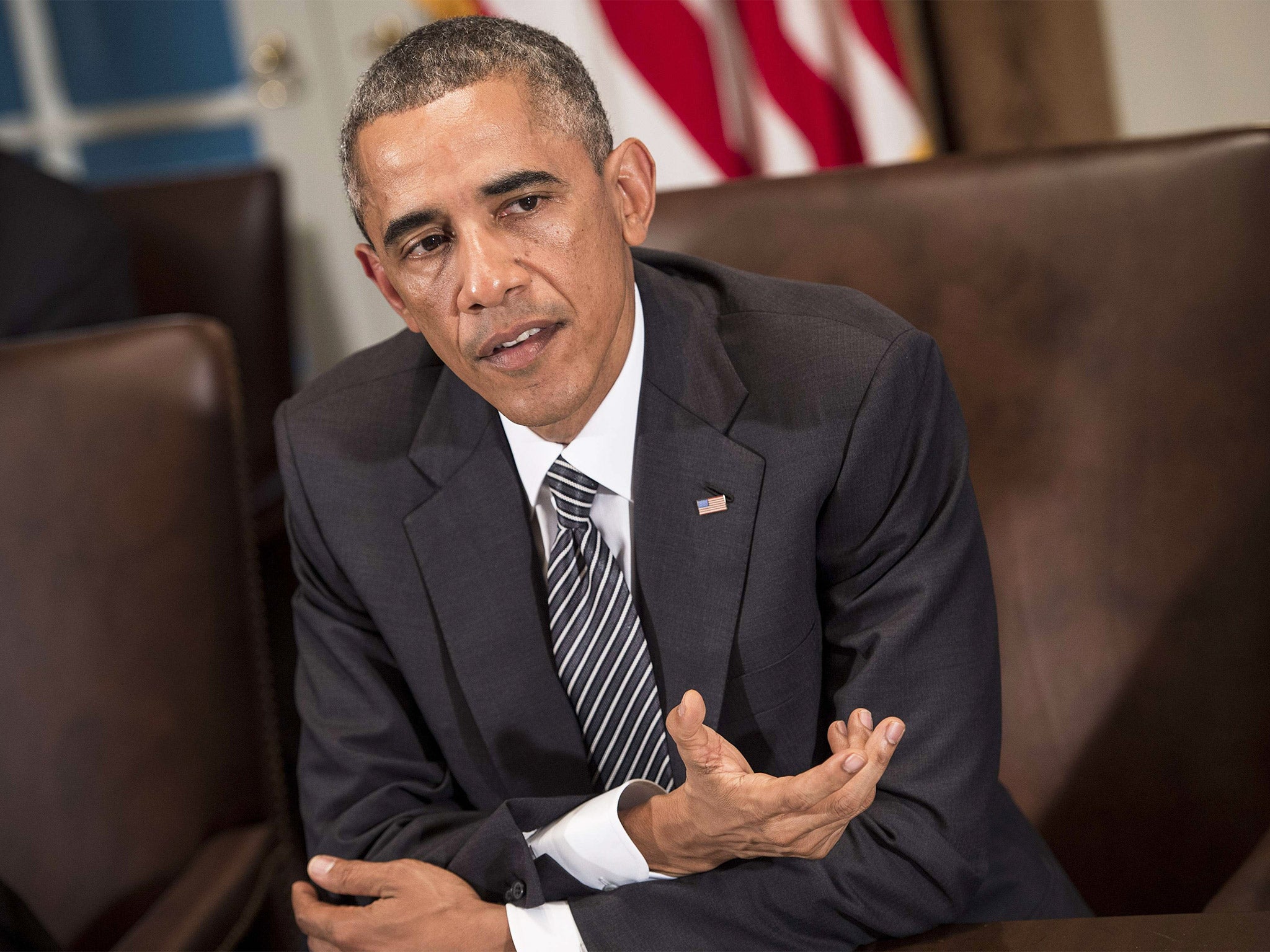War with Isis: No evidence militants have seized any chemical weapons in Iraq or Syria, claims Pentagon
New reports about a lingering stockpile may intensify anxiety in Congress about President Obama’s strategy to target the Islamists

Your support helps us to tell the story
From reproductive rights to climate change to Big Tech, The Independent is on the ground when the story is developing. Whether it's investigating the financials of Elon Musk's pro-Trump PAC or producing our latest documentary, 'The A Word', which shines a light on the American women fighting for reproductive rights, we know how important it is to parse out the facts from the messaging.
At such a critical moment in US history, we need reporters on the ground. Your donation allows us to keep sending journalists to speak to both sides of the story.
The Independent is trusted by Americans across the entire political spectrum. And unlike many other quality news outlets, we choose not to lock Americans out of our reporting and analysis with paywalls. We believe quality journalism should be available to everyone, paid for by those who can afford it.
Your support makes all the difference.Isis militants do not appear to have seized any chemical weapons as they have rolled across Iraq and Syria, according to the Pentagon.
US troops’ exposure to chemical weapons during the last conflict in Iraq has prompted questions about the extremist group’s access to similar deadly agents.
“We have no indications right now that they have possession of those kinds of munitions,” Rear Admiral John Kirby, the Pentagon spokesman, told reporters.
The US destroyed 4,530 chemical munitions following the 2003 invasion of Iraq, which was motivated in part by the George W Bush administration’s belief that then-Iraqi leader Saddam Hussein harboured a large-scale, secret weapons programme. The chemical munitions that US troops later found, however, were mostly decaying remnants of a much earlier weapons programme.
While US troops may have destroyed most of those weapons, officials acknowledge at least some chemical materials may remain in Iraq, including some at a Hussein-era chemical weapons site that extremists seized in June.
The New York Times reported on Wednesday that at least 17 US service members had been exposed to chemical weapons in Iraq after the 2003 invasion. In some cases, it was reported, physicians failed to provide proper care. Some troops have reported lasting health problems.
Although military officials do not have a tally for all of the service members exposed to chemical weapons from 2003 to 2011, when President Barack Obama withdrew US forces from Iraq, a defence official said about 20 had been exposed between 2006 and 2008. Two troops were exposed to a nerve agent in 2004, the official said.

The new reports about Iraq’s lingering chemical stockpile may intensify anxiety in Congress about Mr Obama’s Isis strategy, which is now centred on air strikes on militant positions in Iraq and parts of Syria. Some lawmakers are pushing for more direct US military involvement in the fight.
“There are caches of this stuff clearly out there – it would be folly just to assume there aren’t,” an aide to the House Armed Services Committee said, referring to the possibility of Isis seizing chemical materials. “It’s a contingency you have to be prepared for.” The aide spoke on the condition of anonymity.
On Wednesday, Defence Secretary Chuck Hagel ruled out a new US ground war in Iraq. “Our strategy in Iraq and Syria does require forces on the ground – but they must be local forces,” he said at a US Army conference.
© The Washington Post
Latest air strikes on Kobani kill hundreds of militants
US-led air strikes have killed several hundred Isis fighters around the Syrian town of Kobani, the Pentagon has claimed, but it cautioned that the town near Turkey’s border could still fall.
The US-led coalition has launched about 40 air strikes on the mainly Kurdish town of Kobani in the past 48 hours, the largest number since the strikes inside Syria began on 22 September and illustrating the difficulty of staunching a nearly month-long Isis offensive on the town.
A Pentagon spokesman said bad weather in Iraq had freed up coalition firepower to focus on Kobani. But he said the situation is fluid with pockets still held by Isis.
Reuters